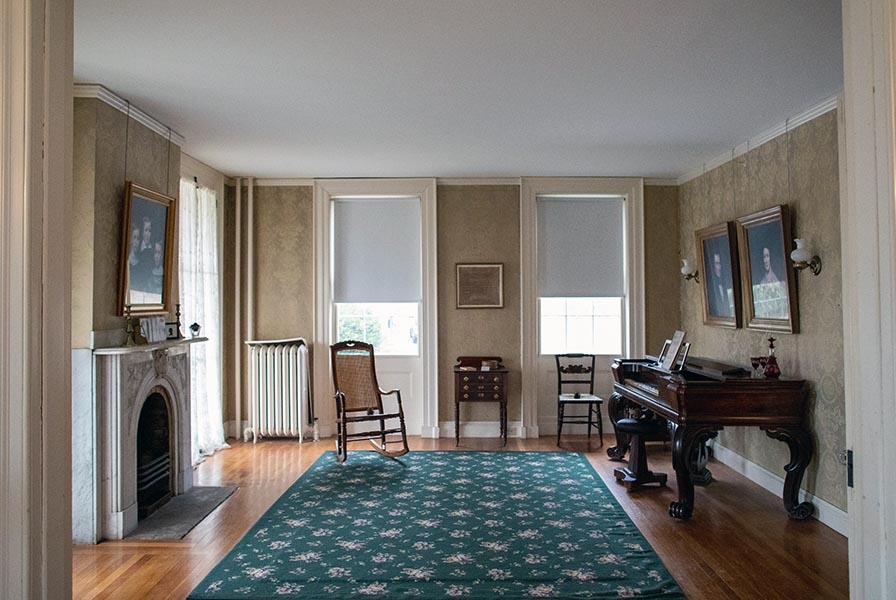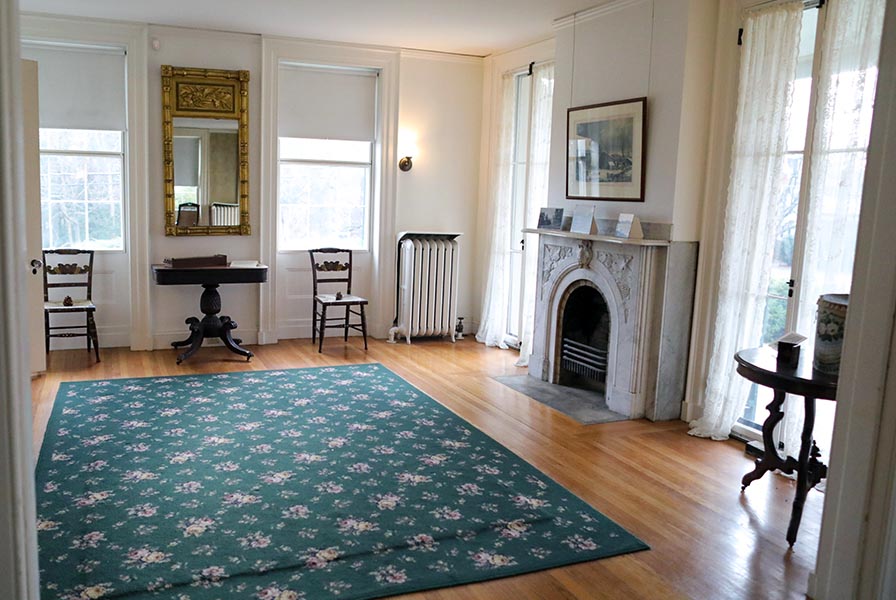Formal and family space
“We are enjoying this evening what is called a “northeast storm”. . . . Vinnie is at the instrument, humming a pensive air concerning a young lady who thought she was “almost there.” Vinnie seems much grieved, and I really suppose I ought to betake myself to weeping; I’m pretty sure that I shall if she don’t abate her singing. . . . Mother is warming her feet, which she assures me confidently are “just as cold as ice.”. . . . Father is reading the Bible. . . .”
The north parlor served as a comfortable family room for time spent reading, writing, and enjoying each other’s company. On cold winter evenings, the family’s chairs would be drawn around the fire as in the cozy scene described here in Dickinson’s letter to the absent Austin, who was away at school and much missed.
Emily Dickinson to Austin Dickinson (L42), June 8, 1851, in The Letters of Emily Dickinson, ed. Thomas H. Johnson (Cambridge, MA: Belknap Press of Harvard University Press, 1965), 1:110–112. 4B:

“I expect all our Grandfathers and all their country cousins will come here to pass Commencement, and don’t doubt the stock will rise several percent that week. . . . .Our house was crowded daily with the members of this world. . . . – But I hope they will pass away as insects on vegetation”
The south parlor was a more formal space for receiving visitors, a frequent occurrence in the prosperous and influential home of the Dickinsons. Each spring, an Amherst College commencement tea was held here, and the poet was expected to help serve tea to the trustees and administrators who attended.
Emily Dickinson to Austin Dickinson, (L128), June 19, 1853, in The Letters of Emily Dickinson, ed. Thomas H. Johnson (Cambridge, MA: Belknap Press of Harvard University Press, 1965), 1:257.
